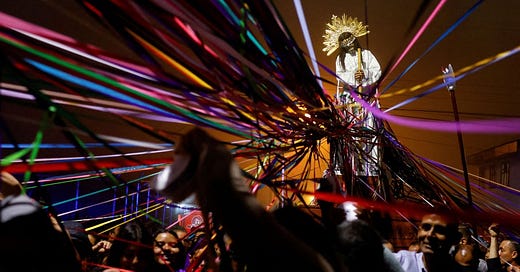
Welcome to your weekly edition of the Top 5 articles we’ve read this week. Each week, we read dozens of articles in the hope we find essays and reporting that speak to big ideas, trends, future looks, and incredible human stories. We hope you enjoy our list, and do always let us know if you have a suggestion or a recommendation! Please also consider becoming a paid subscriber if this is one of those newsletters you open up all the time or look forward to each week. We also greatly encourage gift subscriptions!
The Top 5 articles for your week:
“On Hope, Hate and the Most Radical Claim of the Easter Season” (NYT)
Because Esau McCaulley argues that hope isn’t easy.
“Before Politics, There's the World” (Substack)
Because according to Freddie deBoer, the world is broken, and political solutions must start from there. Here, deBoer rightly critiques a recent New Yorker article on adoption.
“At the limits of forgiveness” (The Point Magazine)
Because Liz Bruenig argues, “perhaps the most important thing about this broad reading of forgiveness is that it recommends not so much a specific kind of practice as a specific kind of person—a forgiving kind. This is what I eventually decided when trying to right my mind about how to handle telling stories about convicted killers and retired popes. It isn’t so much that every case of wrongdoing ought to be forgiven on the same terms or in the same way as much as every case ought to be viewed with a forgiving eye, approached with an openness to that transformation in sentiments that Griswold writes about. We should find ourselves ever open to changing our minds about people and their actions, both in direct interpersonal interactions wherein we have standing to forgive, but also in the spectator relationships we tend to engage in contemporarily, wherein we form moral judgments about one another without direct interactions.”
“The Hardest Decisions Mothers Make” (The Atlantic)
Because this is on motherhood. This is on being in two places at once.
“How Cookie Jars Capture American Kitsch” (Eater)
Because this is fun to think about: “cookie jars are timestamps of American culture.”




I wonder if there is a connection between "need for chaos" voters and people who think polls are rigged maybe just messing with the pollsters?